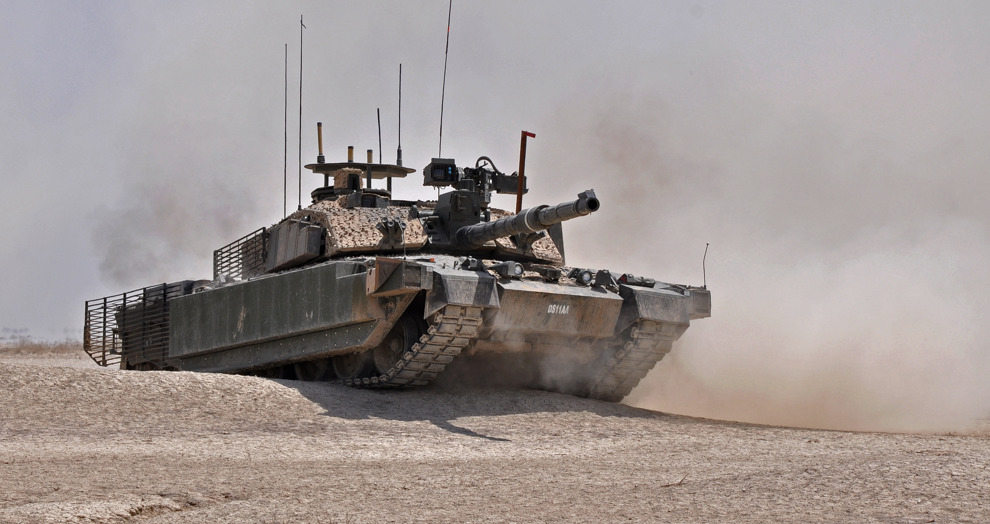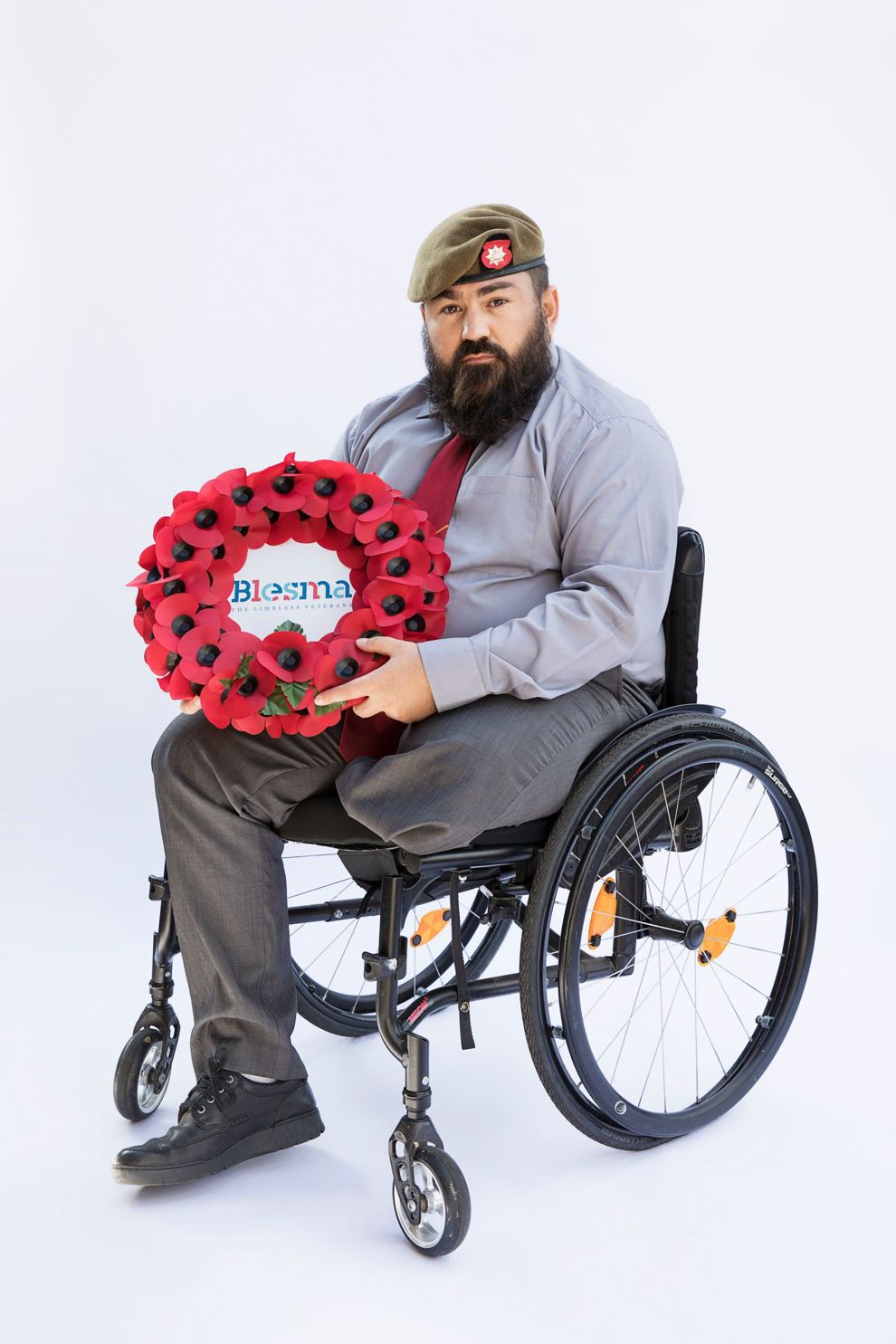Two decades after the beginning of the second Iraq War, two Blesma Members recall the events leading up to their injuries in a conflict that changed changed the landscape of battlefield injuries.
This March sees the twentieth anniversary of the start of the Second Iraq War, which required the biggest deployment of British Armed Forces since WWII.
It was a politically complex conflict, initially targeting dictator Saddam Hussein and his brutal Ba’athist regime. The conditions for the war had been set two years earlier; following the Al Qaeda attacks on the United States on 11 September, 2001 British Prime Minister Tony Blair made a vow to stand with his American allies. Citing the NATO tenet that an attack on one member was an attack on them all, the UK took part in the operation to oust Al Qaeda in Afghanistan.
But US President George W. Bush also had his eye on Saddam. His father, George Bush Senior, had led the coalition forces that had pushed back Iraq’s invasion of Kuwait in 1990 – but it had never toppled the regime. The new Bush administration claimed Saddam was breaking international law by developing weapons of mass destruction, and was refusing to allow United Nations weapons inspectors into the country.
Despite anti-war protests at home, Tony Blair gained the backing of the House of Commons to commit the UK to joining the US in military action. On 20 March 2003, an ultimatum for Saddam to vacate Iraq ran out and invasion began led by US, Australian, Polish and British troops.
UK INVOLVEMENT IN THE IRAQ WAR
The initial tactic was known as ‘shock and awe ’: the use of tremendous force, from several directions, to overwhelm the enemy. The British military deployment was known as Operation Telic (a Greek word for decisive action), with the 1st Armoured Division, under Major General Robert Brims, at its core.
The initial phase of the conflict, tasked with ‘regime change’ – the vanquishing of the Ba’athist regime – lasted just a month. Iraq’s poorly equipped Infantry troops folded rapidly under pressure from a combined might of armoured vehicles, artillery, helicopters and air strikes.
Vital ports and oilfields soon fell under coalition control, and British forces made major contributions towards capturing the tactically crucial city of Basra. While regular Iraqi soldiers abandoned their bases, Saddam’s loyal Fedayeen fighters did mount a resistance, with snipers and ambushes their main methods of offence. UK military casualties began to rack up.

CHANGING FACE OF WARFARE
The capital city was captured on 09 April, after the six-day ‘Battle of Baghdad ’. Kirkuk and Tikrit quickly fell. 172 coalition troops were killed in this initial phase of the war, including 33 from the UK.
IRAQ WAR UK INVOLVEMENT
Saddam and his allies had gone into hiding – but political stability was a long way away. The void in Iraq’s leadership was filled by sectarian violence, insurgency and chaos. The war would last until 2011, with British service personnel remaining in the country until 2009.
It was during this insurgency that the vast majority of British fatalities, and lifechanging injuries, would be sustained: from bomb attacks, sniper fire, firefights and improvised explosive devices.
IRAQ WAR BRITISH CASUALTIES
Overall, 179 British service personnel died serving in the war, 136 of them as a direct result of hostile action. Around 3,500 servicemen and women were injured, with an estimated 2,000 requiring some form of medical evacuation. The Army’s Infantry divisions were particularly hard hit.
It was amid this conflict that Blesma Members such as Stephen Shine and Lionel O’Connor were seriously injured. The use of IEDs, in particular, would lead to a generation of service personnel sustaining battlefield injuries the likes of which had never been seen before. In turn, this would require Blesma to address a complex new set of requirements to be put in place in aid of its Members over the coming years.
Stories from the 2nd Iraq War
STEPHEN, FROM LONDON, LOST HIS LEFT LEG ABOVE THE KNEE WHEN HIS CHALLENGER 2 TANK WAS CAUGHT IN AN IED BLAST IN BASRA IN 2007.


When a roadside bomb hidden in a barrel exploded underneath the driving seat of Stephen’s Challenger 2 tank he bore the brunt of the blast. Twenty years after the war in Iraq began, Stephen takes us back to the events surrounding his injury …
Talk us through the incident… We were in Basra, and I was the lead call sign in a convoy trying to find a bomb maker. We were diverted down a path and I immediately knew something was off; I’d been there for five and a half months, so I knew the area like the back of my hand.
I said to my commander: ‘I’m not happy with this, I don’t want to keep going.’ That’s what they told us to say if felt as though something was wrong. But because I was the first vehicle, it made things awkward. Nobody behind me could move.
So you had to keep going? Yes. We were funnelled by bollards through to a rubbish tip. I thought that the Iraqis might have built it so they could block out our night sights by starting a fire, or could try to launch an ambush, but I was in a 65-ton tank, so I didn’t feel too unsafe.
We reached a barrel in the road and had to stop. I told my commander we couldn’t move until we’d blown it to bits. We put loads of rounds into it and nothing happened. There was pressure from HQ to continue, so I drove around it, and BOOM!, that was it.
IRAQ WAR CASUALTIES UK
You fell into a coma? Yes. I woke up a week later in Birmingham and couldn’t grasp what was going on at all. I thought I was still in my tank on operations.
One minute I was fighting on the front line, the next minute I was lying in a hospital bed with my mate and my mum there.
Coming out the coma was the worst. My right hand has been shattered, so I could only use my left arm – my mum had to feed me ice cream. I’d lost so much weight; I was down to about six and a half stone. My hearing was messed up, I couldn’t speak...
When did you first encounter Blesma? It has been there for me pretty much from day one; the Association was by my bedside in the hospital in Birmingham. Two Members came to visit me, and I was amazed because one of the guys had two prosthetic legs, but he’d turned up on a motorbike!
I didn’t realise that was possible. I knew nothing about life as an amputee, but from the get go, Blesma has been there to help.
How has Blesma helped specifically? It has helped me get grants for my new flat, which has got me settled. And I’ve been on some great trips; to Colorado, the Bahamas, Austria and France.
They are beautiful places to go, and have been so good for my mental health. But the best benefit of Blesma is in meeting a mix of other people. That sense of camaraderie is so helpful; it helps me feel much better.
THE TRAUMATIC EVENTS SURROUNDING LIONEL’S INJURIES HAVE BEEN HARD FOR HIM TO DEAL WITH, BUT HIS FAMILY HAS GIVEN HIM STRENGTH


Lionel served in Iraq with the Royal Anglian Regiment. He lost his left leg above the knee in an attack on his vehicle in 2006, in which two of his comrades were killed.
“My father was ex-Services and I felt like I needed to do something to earn my place in society, so I joined the Army,” says Lionel. “I wanted to be in the Infantry, and my local unit was the Royal Anglian Regiment. I fitted in quickly, but I was injured three months after being deployed to Basra in 2006.
“We were driving in a routine Land Rover patrol and I just remember seeing a big cloud of dust and sparks. I fell backwards, and everything went silent.
“One of the guys I was travelling with had taken me under his wing. We were good friends and he’d taught me how to be a soldier. After the explosion, his face was right by mine. I tried to get him off me but he was unresponsive, and when I opened his eye with my thumb I knew he was dead.
Another soldier, Adam, was lying on top of both of us. He had died too. When the door was finally opened, blood poured out of the back of the vehicle like a river. I felt for my knee, and touched the bone that was sticking out.
IRAQ AND AFGHANISTAN WAR CHARITY UK
Lionel was evacuated to the UK and was taken straight to Selly Oak. “It didn’t take me long to get up and walking – I was using a prosthetic within three months. Rehab was ok because I was fit, but it got tougher over the years. I’ve had dark times, but always knew that if I did anything silly to myself, it would be my family that would suffer.
“I didn’t know about the charity before I was injured, but the great thing with Blesma is it knows exactly what to do. They don’t ask anything of you, they just say: ‘How can we help?’
Iraq War Campaign
This March marks the 20th anniversary of the Second Iraq War. Please try to remember those who cannot forget.
Life after traumatic injury can be challenging. Blesma is here to help.
Blesma is committed to helping its Members live independent and fulfilling lives after suffering the loss of limbs, use of limbs, sight, speech or hearing.
Since 1932, Blesma has worked tirelessly to provide practical, emotional and financial support to injured military personnel, their families and widow(er)s as they rebuild their lives.